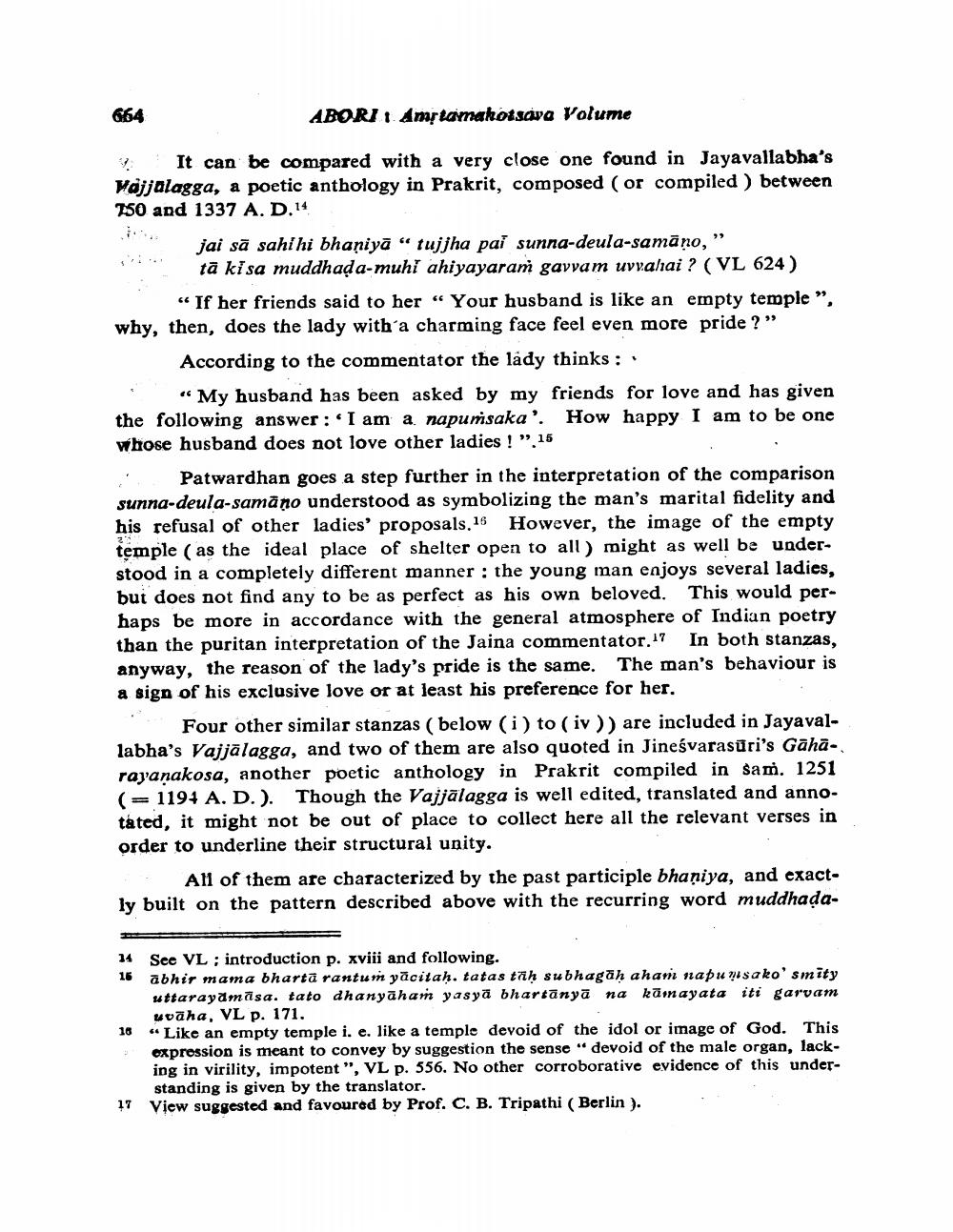Book Title: Prakrit Riddle Poetry Author(s): Nalini Balbir Publisher: Nalini Balbir View full book textPage 4
________________ 664 ABORI I Amrtamakoisova Volume It can be compared with a very close one found in Jayavallabha's Vajjalagga, a poetic anthology in Prakrit, composed (or compiled ) between 250 and 1337 A.D. 14 jai să sahihi bhaniyā “ tujjha pai sunna-deula-samāno,” tā kisa muddhada-muhi ahiyayaran gavvam uvvahai? (VL 624) “If her friends said to her “ Your husband is like an empty temple", why, then, does the lady with a charming face feel even more pride ?" According to the commentator the lady thinks : “My husband has been asked by my friends for love and has given the following answer: I am a napumsaka'. How happy I am to be one whose husband does not love other ladies !". 15 ... Patwardhan goes a step further in the interpretation of the comparison sunna-deula-samāno understood as symbolizing the man's marital fidelity and his refusal of other ladies' proposals. 16 However, the image of the empty temple (as the ideal place of shelter open to all ) might as well be understood in a completely different manner : the young man enjoys several ladies, but does not find any to be as perfect as his own beloved. This would perhaps be more in accordance with the general atmosphere of Indian poetry than the puritan interpretation of the Jaina commentator.1? In both stanzas, anyway, the reason of the lady's pride is the same. The man's behaviour is a sign of his exclusive love or at least his preference for her. Four other similar stanzas (below (i) to (iv)) are included in Jayavallabha's Vajjālagga, and two of them are also quoted in Jineśvarasűri's Gaharayanakosa, another poetic anthology in Prakrit compiled in sam. 1251 (= 1194 A. D.). Though the Vajjālagga is well edited, translated and anno. táted, it might not be out of place to collect here all the relevant verses in order to underline their structural unity. All of them are characterized by the past participle bhaniya, and exactly built on the pattern described above with the recurring word muddhada 14 See VL ; introduction p. xviii and following. 15 abhir mama bharta rantum yācitan. tatas täh subhagan aham napunisako'smity uttarayamāsa. tato dhanyāham yasyā bhartānya na kūmayata iti garvam uvaha, VL p. 171. 16 “Like an empty temple i. e. like a temple devoid of the idol or image of God. This expression is meant to convey by suggestion the sense" devoid of the male organ, lacking in virility, impotent", VL p. 556. No other corroborative evidence of this under standing is given by the translator. 17 View suggested and favoured by Prof. C. B. Tripathi (Berlin ).Page Navigation
1 2 3 4 5 6 7 8 9 10 11 12 13
